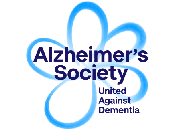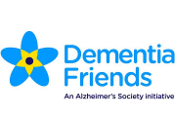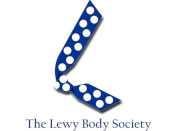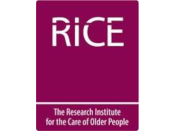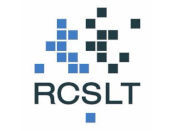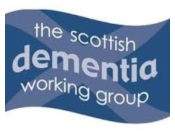
Living with Dementia: leisure and reminiscence activities
Living with Dementia: leisure and reminiscence activities
This factsheet is available for sponsorship, email marketing@dlf.org.uk
Sponsorship has no influence on our impartial content
Factsheet contents
- Introduction
- Sensory therapy and stimulation
- Reading
- Music
- Reminiscence therapy
- Reminiscence sights and sounds
- Writing
- Hobbies and pastimes
- Outdoor activities and exercise
- Social events
- Holidays
- Therapy pets
- Assessing your needs
- Provision of equipment
- Funding sources for care
- For further advice from us
- Contributors
- Useful organisations and resources
- References and further reading
Introduction
Even though an individual may find their memory becoming worse, they may still benefit from activities that require their long-term memories to be accessed, rather than relying on recent memories. Reminiscence, which can be described as sharing life experiences, memories and stories from the past, is one such activity. The recollection of past events can be aided by the use of pictures, objects and music from years before. It is anticipated that these prompts elicit a positive emotional response that encourages conversation.
As an individual reaches the latter stages of their dementia journey, they may no longer be physically active but still require positive stimulation. For example, sensory mats and stimulation blankets which have different tactile surfaces can be used to activate the five basic senses (sight, hearing, smell, taste and touch) which can help reduce anxiety or agitation.
Sensory therapy and stimulation
Sensory therapy uses everyday objects and gentle activities to help to trigger memories and lessen the feeling of isolation and can be calming and enjoyable for people with dementia.
A study has found that sensory therapy activities reduce agitation in residents with dementia in a care home setting. Also, practitioners and carers have reported that some people in the later stages of dementia find comfort in sensory stimulation, especially the sense of touch.
Sensory cushions, aprons and blankets
 Some people at the later stages of dementia can experience 'restless hands' and as a result may pick at their clothing or furniture fabric. Fiddle or twiddle muffs are usually made from colourful fabrics, with ribbons, buttons or beads and different types of textured materials attached. They appeal to and stimulate the sense of touch and the varied textured items are designed to help keep the hands occupied. The muff feature can help keep hands warm and snug, which can also be comforting. Tactile aprons and blankets are also available.
Some people at the later stages of dementia can experience 'restless hands' and as a result may pick at their clothing or furniture fabric. Fiddle or twiddle muffs are usually made from colourful fabrics, with ribbons, buttons or beads and different types of textured materials attached. They appeal to and stimulate the sense of touch and the varied textured items are designed to help keep the hands occupied. The muff feature can help keep hands warm and snug, which can also be comforting. Tactile aprons and blankets are also available.
It is very important to take into account personal preferences when selecting sensory products for individuals.
Aromatherapy and aromatherapy massage
Research suggests that lavender oil aids relaxation and lemon balm aids memory. However essential oils are highly flammable, can be toxic and can irritate the skin in undiluted states. For further information on their use with people with dementia please consult the International Federation of Aromatherapists Their telephone number is 020 8742 2605.
Further reading: Complementary and alternative medicine and dementia, by the Alzheimer's Society.
Empathy dolls and doll therapy
 As dementia progress some people may find that they are drawn to cherished items from childhood such as dolls or teddies. Empathy dolls can provide comfort for people with dementia and have been shown to help to reduce anxiety and agitation (Bisiani and Angus, 2012). Looking after a doll or teddy can provide some people with a focus and help them feel needed and useful.
As dementia progress some people may find that they are drawn to cherished items from childhood such as dolls or teddies. Empathy dolls can provide comfort for people with dementia and have been shown to help to reduce anxiety and agitation (Bisiani and Angus, 2012). Looking after a doll or teddy can provide some people with a focus and help them feel needed and useful.
There are a range of empathy dolls, teddies and stuffed animals available which are tailored for the needs of people with dementia. Some have additional features which can appeal to the senses, such as musical teddy bears. Others vibrate or are weighted, which can provide additional sensory input and feelings of comfort.
Some may not like seeing the person they care for with a doll - they may feel that it is demeaning and not age appropriate. It is also important to recognise that some people with dementia may not wish to interact with a doll; this therapy is very much a personal preference for the person with dementia.
Sensory rooms and sensory environments
People living with dementia can benefit greatly from exposure to soothing and gently stimulating sensory environments - this can include items such as coloured lights, soothing music, calming aromas and interesting textures to appeal to the senses.
Sensory rooms were developed for this purpose in the 1970s. Research conducted by Dr Collier at the University of Southampton found that if a sensory environment was adapted to an individual's needs with dementia, improvement in performance, mood and behaviour could be achieved (Collier, L, and Jakob, A. 2016).
It may be impractical to devote an entire room in the home to sensory stimulation. Also some people with dementia may feel overwhelmed or disorientated with too much stimulation. For this reason aspects of the home environment could be adapted to make both the indoor and outdoor environment appealing to the senses. For example you may like to furnish your home with lava lamps, a fish tank, soothing music, or varied textured cushions and surfaces which can all help to create stimulation. Outdoors, water features, fragrant plants, a bird table and flowers can help to provide a calming haven to sit in. The choice of items needs to be safe for you and your family.
Reading
Reading can be a lifelong pleasure and having dementia does not mean that you have to stop. If you find some books are now more challenging to read, it is possible to adapt your reading approach through the use of a different style of book.
Books specifically designed to meet the needs of readers at different stages of dementia can have shorter paragraphs and sentences - the message is clearer, but they do not sacrifice a good plot. They may use simpler language but are still written in a way that will hold the reader’s interest. For those in the later stages of dementia, picture books which are age appropriate and engaging can be an option. Also some people find that large print books may help with their understanding.
Another option is to use audio books. They can be purchased on the high street or online and are available on loan from local libraries. Favourite programmes or current affairs talks are available by downloading a podcast, which can then be listened to online. Some are in series form which can be subscribed to, through iTunes for example, and downloaded via a podcast app on a mobile device.
Dementia friendly reading groups are designed to offer a friendly, welcoming environment, to encourage the pleasures of reading together and the sharing of memories. To find a reading group in your area visit the Reading Groups for Everyone'a website. Further information can also be found on the The Reading Agency's website
Music
Listening to and making music has been shown to reduce anxiety and agitation in some people with dementia.
Singing
 Singing can be an enjoyable activity for reminiscence. Some people with dementia can remember the words of songs learnt long ago, even though they may struggle with remembering everyday things. This is because this information is stored in their long-term memory. Also music often has an emotional memory connected with it, making it easier to recall memories associated with a particular song or tune. For this reason many people with dementia can benefit from singing.
Singing can be an enjoyable activity for reminiscence. Some people with dementia can remember the words of songs learnt long ago, even though they may struggle with remembering everyday things. This is because this information is stored in their long-term memory. Also music often has an emotional memory connected with it, making it easier to recall memories associated with a particular song or tune. For this reason many people with dementia can benefit from singing.
Playing CDs of favourite songs can help to stimulate memories of past times and tunes which are good to sing along to can be enriching and fun. CDs from the 40s and 50s for example are available for purchase from a range of outlets or can be downloaded from the internet.
Singing with a choir
 This burgeoning movement can help people with dementia to find their voices through singing. Choirs are run all around the country - there may be one in your local area.
This burgeoning movement can help people with dementia to find their voices through singing. Choirs are run all around the country - there may be one in your local area.
Further reading:
- Singing for the Brain - The singing groups for people with dementia
- Just Sign London - Singing for Dementia
- Arts 4 Dementia - Empowerment through artistic stimulation events calendar
Listening to the radio
For people who enjoy listening to the radio, some may find managing radio settings, stations and volume controls difficult. Using a traditional or familiar style, in a retro design for example, or with simplified controls or one button operation can be helpful. Some radios may have colour contrast.
Percussion instruments
Making music in a group using simple percussion instruments can provide enjoyment and contribute to feelings of wellbeing for people with dementia. There's a range of instruments available, e.g. maracas, rattles, hand bells, xylophones, bell shakers and drums.
Dance
 There are a number of dementia-friendly dance groups being run in the UK which are found to be beneficial to the participants. Daphne, a senior physiotherapist who runs a dance group for people with dementia in Cumbria region, has noted that they have seen 'incredible focus in these sessions and fluidity of movement'.
There are a number of dementia-friendly dance groups being run in the UK which are found to be beneficial to the participants. Daphne, a senior physiotherapist who runs a dance group for people with dementia in Cumbria region, has noted that they have seen 'incredible focus in these sessions and fluidity of movement'.
Several charities run groups, though currently these are mainly in the south of the country. They welcome carers and family members if you require support whilst you are there.
Some information about dance groups can be found here:
- The Green Candle Dance Company
- General arts search UK
- Dance sessions for people with dementia
- Circle dance for people with dementia
Reminiscence therapy
Reminiscence therapy seeks to tap into long-term memories using props such as pictures, photographs, favourite songs, toys, sounds and everyday objects from the past to help people with dementia to recall their personal histories from child and adulthood and provide comfort and enjoyment. It also opens up topics for conversation. They can feel more confident and relaxed and this can help them to speak with authority on events from their past, such as their working lives or family.
Group reminiscence therapy can be beneficial in fostering an emotional connection and reducing anxiety by providing focus and distraction. This is achieved by the group discussing topics from the past that they are all familiar with, thus forming a common ground and generating cohesion. Findings from a study on reminiscence therapy showed that it helped with reducing levels of depression in a number of participants (Hsieh Wang 2003).
Virtual reality headsets for reminiscence therapy
Virtual reality (VR) is an interactive computer-generated experience taking place within a simulated environment. Virtual reality for reminiscence therapy involves wearing a headset to view familiar and pleasant images such as a beach, a forest walk or a scene from a particular era. Images can be viewed in 360 degrees, which is designed to give the wearer the feeling that they are actually present in that scene.
This is a very new area in the field of reminiscence for people with dementia and there has not been any detailed research on the use of this technology and so it should be used with caution. Small trials conducted by some of the companies which produce virtual reality headsets indicate that people with dementia seem to enjoy the experience. However, the approach needs closer examination and issues such as the following need to be considered:
- Does it cause increased confusion to someone who may already be disorientated?
- How do people feel once the session has finished and they are back in reality?
Also VR should not be used as a substitute to a real excursion out to the seaside or woods for example.
Further information about virtual reality for reminiscence therapy can be seen in this video from Tribemix Virtual Reality for Dementia Care.
Reminiscence sights and sounds
Research has demonstrated that people with dementia can access long-term memories more easily when those memories are associated with the senses, especially with sound. Incorporating sounds into reminiscence therapy such as playground, seaside or countryside noises and favourite music from the past can help to access those long-held memories.
Reminiscence pictures can help to unlock the long term memory and there are a variety on the market which address multiple eras. They depict familiar scenes, products, people or places of the past, such as iconic singers, actors or songs from a given year/decade.
 The sense of smell can evoke powerful memories, such as the seaside, summer flowers or food. Smell packs are designed to stimulate these senses. They cover a range of themes - e.g. the garden, the shed or the forest and packs typically consist of bottles of scent with a CD of sounds to accompany the scents.
The sense of smell can evoke powerful memories, such as the seaside, summer flowers or food. Smell packs are designed to stimulate these senses. They cover a range of themes - e.g. the garden, the shed or the forest and packs typically consist of bottles of scent with a CD of sounds to accompany the scents.
Having three dimensional objects that you can see and touch can help enormously to jog your memory to events of the past. Reminiscence packs contain reproduced products and items from a bygone era - e.g. a theme like a 1960's larder, or a box containing household items like soap, a ration book or a thimble and measuring tape, or a variety of traditional games.
For the purpose of reminiscence therapy the BBC have given access to its BBC archives of old TV clips, theme tunes, scenes and music covering a range of decades from the 1930s onwards. To view files in the archive, select a Theme or a Decade and choose whether you wish to have Image, Audio or Video content.
Writing
Completing a life history book can be a rewarding activity. It can help you focus on your life's achievements and take pride in them. It can also help to generate conversations about events from your past which are held in your long term memory, making your carers or visitors aware of your past history, identity and roles, especially if they have not known you in the past.
Including photos and memorabilia such as brochures or cards from your past in your life history book can be a powerful memory trigger. It will also create meaning for you and will be interesting for others to look at.
Dementia UK offers a comprehensive life story book template which can be downloaded for free.
There are a range of life story apps available for Apple or Android devices. These enable you to create an electronic version of your story book. Some allow you to export the story book so it can be printed out; others have the option of audio recording memories. Using an app may make it easier to access, however many people with dementia may prefer to use a paper version when creating their story books.
Dementia Diaries is a UK-wide project that brings together people’s diverse experiences of living with dementia as a https://dementiadiaries.org/series of audio diaries. It serves as a public record and a personal archive that documents the views, reflections and day-to-day lives of people living with dementia.
Hobbies and pastimes
Jigsaw puzzles
People with dementia can gain enjoyment from doing simple jigsaw puzzles which are age appropriate and relevant to them. They can more easily identify with familiar topics which are relevant to their interests and past; this also helps them to retrieve long held memories. Dementia-friendly jigsaws tend to have larger pieces and depict a range of themes such as favourite hobbies, outdoor scenes, pets etc.
Working on a jigsaw puzzle with a family member or carer can also help to stimulate the mind, generate conversation and offers a sense of purpose while engaging in a familiar activity.
Bingo
Bingo is a sociable game that is straightforward to play and can be enjoyed in a group situation with people with memory problems. It is fun, generates conversation and mental stimulation, as well as being a helpful reminiscence aid. Bingo sets are available to buy and typically include a mixing machine, numbered balls, board, playing cards, number covers and a rules sheet.
For those whose dementia is more advanced, some bingo sets provide added prompts such as the animal sounds and pictures.
Simple baking activities
People with dementia who have done a lot of baking in their early life may find that they retain their baking skills for longer, as they are embedded in their long-term memory. Baking can help to stimulate long-term memories, improve mood, decrease anxiety and help to generate conversation.
If you want to continue to bake but are finding it a challenge, then selecting recipe books that display imperial measurements for example or have pictures with clear, straightforward instructions can help to make it easier to follow the recipes. As dementia progresses you may require supervision with baking.
Sewing and knitting
Many people may have been taught how to sew as a child. It is a skill that people do not forget, as it is ingrained in their long-term memories. However age-related arthritis, poor vision and dementia can make it difficult to perform finer or more complex sewing tasks.
Simple sewing kits can help with this. These kits can typically comprise of a sewing card depicting a simple picture with a series of holes in it, in which a basic stitch can be sewn or laced through.
Some further information on knitting groups is available from the Alzheimer’s Society:
- A knitting group providing a way for people with dementia to remain involved in the community
- Activity groups – for people with dementia and their carers
Simple craft activities
There are range art and craft activities which are age appropriate and meaningful and can be are adapted to different levels and abilities. Many of them can be enjoyed into the later stages of dementia, albeit with assistance. Engaging in craft activities helps to keep the mind active and can improve mood and prevent anxiety.
Here’s a selection of ideas to help get you started.
Activities for seniors – how to make a Christmas pomander (this may require the assistance of you carer or family member).
For those who enjoy painting and colouring, age appropriate themed colouring books consist of simple images with clear outlines. Alternatively Aqua Paint can be suitable for people in later dementia. The surface of the paper is painted with water which then reveals a picture.
Craft-themed ideas from the Alzheimer's Society:
- Five creative activities to help people living with dementia
- Simple card making
- Stone and shell craft
- How to make paper flower
Pottery and clay
For people who enjoy working with their hands, pottery can be an enjoyable activity and with the right level of support you can produce some good results. You do not need to use a potter’s wheel which requires a higher level of skill. Coil and thumb pots can be successfully crafted with minimal assistance. Also opting for air dry modelling clay eliminates the need to use a kiln for firing.
Alternatively there are other modelling materials such as fimo which dries in conventional ovens at a low temperature. It is comes in a variety of colours and so there is no need to paint the finished product. You may require assistance using this.
Some residents in Derbyshire have been attending a pottery group in partnership with the Alzheimer’s Society since October 2014. Tutor Sue Mulroy explains that: ‘Working with clay helps those with dementia focus on a task and this can improve concentration and provide a sense of purpose and achievement.’
Woodworking
Creating something out of wood can be immensely rewarding. Men’s Sheds is a charity which caters for men who have given up hobbies such as woodworking due to illness, dementia or other circumstances and want to get back to it. The Sheds can cater for several individuals at a time and have support staff on hand to assist if necessary.
There are 226 Men's Sheds in the UK. To find out if there’s a Shed near you, call 01606 884924.
Bird watching
A survey carried out in nursing and residential homes in the USA demonstrated a positive therapeutic effect and boost to morale in those residents who engaged with bird feeding and watching activities. Research carried out in 1983 found that people who had the opportunity to feed birds showed an improvement with feelings of happiness, sleep patterns and alertness.
It may not be practical to get out into the countryside to bird watch, but a bird table with a feeder set up outside of your window could be a suitable alternative. If you are mobile and can access your garden safely, feeding the birds can provide an added richness, as it appeals to all of the senses. Having a simple reference guide can help you and your carers or family to identify the types of birds you see.
Further reading:
- Benefits of bird feeding in care and nursing homes by Wiggly Wrigglers
- Audubon Connects Elders with Alzheimer's to Nature, video from the National Audubon Society
- Five top tips for bird watching with someone living with dementia by Care UK
Outdoor activities and exercise
Cycling
There is nothing better than the joy of speeding along on a bicycle. Sadly it is something many people feel that they cannot continue with due to dementia and concerns with safety.
Positive Spin, run by Cycle Training UK, is a charity which is geared towards helping people with dementia to rediscover the fun of cycling safely. They understand the needs of people with dementia and are operating in several boroughs in London, providing supervised cycling both indoors and out, using tandem tricycle and standard bikes. A range of benefits have been noted since the project started in July 2015, including increased muscle strength, reduced stress and depression and increased confidence.
More on the benefits of cycling can be read in this short blog on the Alzheimer's Research UK's website, where a cyclist blogger shares his experience on how he has helped his friend who has dementia to keep enjoying cycling safely.
Swimming
Swimming is a gentle exercise that can have a huge positive effect on the emotional well-being and quality of life of people living with dementia. It is a great way to keep active and to socialise after a dementia diagnosis (Alzheimer’s Society). Some leisure centres offer dementia-friendly swimming sessions.
Further information is available on The Dementia Friendly Swimming Hub, a project developed to enhance the swimming experience of those living with dementia and their carers by improving facilities and removing barriers.
Exercise classes
Aerobic exercise in early Alzheimer's type dementia was associated with improved memory performance and reduced atrophy (shrinkage) of part of the brain, suggesting that fitness gains may be important for brain benefits.(Morris, Vidoni, Johnson, Van Sciver, Mahnken, Honea, Wilkins, Brooks, Billinger, Swerdlow, Burns 2017).
It is important to continue to exercise with dementia as it helps to maintain muscle strength, posture and improve mood. Increasingly there are dementia friendly exercises classes being rolled out in the UK. Further information about Age UK's exercise classes can be found on their website. The University of Nottingham has also launched a new dementia-friendly exercise class.
Hiking
Getting out into nature and walking can help to improve mood, strength and range of movement. There are a number of organisations which run walks which are good for people with dementia. A couple of examples include:
Large outdoor and indoor games
 Outdoor games can be a lot of fun for people with dementia. Some can also be suitable for people with mobility problems, as they can be played from a chair or wheelchair comfortably.
Outdoor games can be a lot of fun for people with dementia. Some can also be suitable for people with mobility problems, as they can be played from a chair or wheelchair comfortably.
You may find that games from the past such as bowls may be the easiest to play, as such games will be embedded in your long-term memory. A throw and tell ball for example can be a great group activity and its cues can help to generate conversation.
Social events
Dementia friendly cinema
Many cinemas around the country offer dementia friendly screenings. Staff undergo training to help them to understand the needs of their customers and the environment is made more welcoming and accessible for people with dementia – for example lighting is turned up slightly and exits and toilets are clearly marked to help prevent feelings of disorientation.
The film choices on offer are generally geared to what may appeal to people with dementia, with a focus on musicals and sing-alongs. Your local cinema may offer dementia friendly afternoon screenings.
Dementia cafes
Dementia cafes are set up specifically with the needs of people with dementia in mind. They are comfortable places where staff are welcoming and aim to put their customers at ease. The environment is designed to help the visitor to stay orientated, with clear signage and good lighting. Some dementia cafes offer informative talks and provide opportunities to meet with other people with dementia or health professionals.
The cafes can be extremely enriching places and people often comment that they feel less isolated, as they have met with and talked to other people who are going through similar experiences to themselves.
Alzheimer’s Society run dementia cafes. To find if there’s one in your area visit: www.alzheimers.org.uk/get-support/your-support-services/dementia-cafe
Holidays
We all need to have holiday now and again. However, being in an unfamiliar part of the country and in unfamiliar accommodation can be disorientating for some people with dementia.
There are companies and charities in the UK which specialise in holidays for people with dementia. They provide twin or adjoining accommodation for carers and wheelchair adapted facilities if required. Other companies offer supported holidays for small groups with help available. Some supply an itinerary of daily activities and excursions with support.
More information about dementia friendly holidays can be found at:
- Dementia Friendly’s website. Dementia Friendly are a registered charity dedicated to supporting people with dementia to get outdoors.
- Young Dementia UK. A dedicated page on their website lists dementia-friendly accommodation and holidays
Therapy pets
Studies suggest that animal assisted therapy can help to reduce agitation and anxiety.
There are several animal assisted therapy charities operating in the UK, however at this point in time most of them are set up to carry out group visits to homes and day centres. However you or your carer could request a visit from one of the charities listed below to pop to your local day centre or community group.
- Therapy Dogs Nationwide is a national charity where visiting volunteers take their own dogs into establishments to provide comfort, distraction and stimulation
- Pets as Therapy is a national charity that provides a visiting service in hospitals, hospices, nursing and care homes, special needs schools and a variety of other venues all across the UK
- The Dementia Dog Project is based in Scotland and supports families living with dementia, both at home and in community settings.
Soft robotics
Robots are being pioneered to help people with dementia with everyday tasks such as medication management and environmental control such as the operation of heating or lighting. Others address emotional needs by acting as companion pets.
One such example is PARO. Designed in Japan in 2004 by Dr Takanori Shibata, a researcher at Japan’s National Institute of Advanced Industrial Science and Technology and now spreading worldwide, PARO is a robotic therapeutic seal which has been shown to bring benefits to people with dementia.
Engagement is created through sound and movement - it's tactile soft fur and compact size means that it can be held or hugged. The cuddly seal reacts to being stroked by adjusting its position and blinking its eyes. It actively seeks eye contact and can respond to a person’s voice. It can also learn to recognise faces and can move its tail and flippers autonomously.
The Centre for Assistive Technology and Connected Healthcare from the University of Sheffield conducted a small evaluation of the use of PARO in partnership with Sheffield Health and Social Care on a group of people with dementia. Those who engaged with PARO demonstrated greater verbal communication and eye contact when using the robotic seal compared to those in another group who engaged with a standard cuddly toy (Milling, Dr A, Skarkey, A). Similar research on the affects of PARO, conducted on a group of ten people over seven sessions, demonstrated increased social interaction and activity (Sabanovic, S, Bennett, C, Chang, W and Huber, L, 2013).
This is an interesting development where electronic technology meets with more traditional textile objects. However, it is still early days in the field of therapeutic robots and further research is required into the benefits.
Assessing your needs
A range of conditions may cause forgetfulness, anxiety, low mood and confusion, however they may also be early signs of dementia. A visit to your GP would be recommended to rule out other causes and allow for a better understanding of the illness and how it may progress, as well as strategies on how to manage the symptoms.
The assessment for dementia is a process that takes time and goes through various stages and tests. These may include a physical examination, a blood test and interviewing both the person and their concerned friend/relative separately. This may lead to a referral to a local memory service or clinic. The GP, Community Psychiatric Nurse or a member of the memory clinic staff will be able to advise on symptoms, how the disease may develop and provide information on appropriate treatment. They will also be able to advise you on what support there is available locally. Prior to an appointment it can be useful to keep a journal or diary of any tasks that have become more difficult or concerns that you may have.
The GP can refer you for a Health and Social Care Needs Assessment, or you can contact your local authority Adult Social Care Department and make a self-referral, or have a friend or relative do it for you. By law anyone who appears to need care and support can request an assessment regardless of their income or savings.
The assessment will focus on your needs, how they impact on your well-being and on what you want to achieve and will aim to identify any difficulties you may have in caring for yourself. An Occupational Therapist will carry out the assessment and will be able to advise on strategies to help reduce any identified risks and recommend any equipment that may be helpful to maintain independence. If someone else is helping you they are also entitled to a carers assessment, which will help to identify what help and support they may need.
There are a number of charitable organisations listed below that can provide help and support for the person with dementia and their relatives and carers.
Provision of equipment
Many simple assistive technology devices mentioned in this fact sheet can be privately purchased. Others can be provided by local authorities or the NHS to meet an assessed need; you or a family member can request a home assessment from an occupational therapist
Permanent loan: Local Authority and health provision
If you require disability equipment, telecare or adaptations to your home then your local authority may be able to help. They can supply equipment or minor adaptations that cost under £1,000, free of charge. (Department of Health 2014, section 2.9). In Scotland, Local Authorities make their own arrangements for provision of minor adaptations and details can be accessed via your Council's website.
Some equipment such as pressure relieving cushions, mattresses, some mobility aids and wheelchairs are supplied by your local Health Authority. A referral to the District Nurse or Wheelchair Service for these items can be made via your GP or other health professionals including a Community Occupational Therapist or Physiotherapist.
Disabled Facilities Grant (DFG)
Should you need adaptations to your home that cost more than £1,000 that will allow you to continue to live there, you may be eligible for a Disabled Facilities Grant (DFG). An Occupational Therapist will complete an assessment and if the work is deemed necessary to meet your needs and is reasonable and practical, then they will arrange for a financial assessment to be undertaken.
If you meet the criteria for funding, the Occupational Therapist will make recommendations for the adaptations required.
Private purchase
If you do not wish to use local authority services, there are independent Occupational Therapists who can assess your needs and help to advise or assist you in buying any equipment or arrange adaptations to your home that you may require.
You can also purchase equipment privately, but it is recommended that you compare different options first. There may be an equipment demonstration centre near you where you can look at and try out equipment before purchasing, as well as receiving impartial advice.
Charity and Grant funding
Charitable trusts may sometimes provide equipment or give a grant for equipment purchase.
Turn2Us is a national charity that helps people who are in financial difficulty find grants for the provision of equipment, and Community Care gives a list of charitable organisations that give grants.
Charities tend to give awards in accordance with a predetermined criterion, so it is important that you carefully select the organisations that apply to your condition. There are also some workplace charities that will provide support for ex-employees. If you are or have served in the Armed Forces, or are a dependent or carer of a person who has served, The Royal British Legion may be able to provide you with support for specialist dementia care or grants for equipment and adaptations to your home, or small crisis grants to meet unexpected expenses.
Funding sources for care
If you need support with daily tasks that may include help from a carer, the delivery of meals or residential care then your local authority may help with the cost. How much support you are entitled to will depend on your income and savings and what your care needs are. A financial assessment of your means will be carried out to establish how much support you are entitled to.
You may be eligible for further financial support such as Attendance Allowance or Personal Independence Payment (PIP) and if you have a person who cares for you for 20 hours or more a week, they may be eligible for some financial support.
If you live alone you can apply to your local authority for a 25% reduction on your Council Tax bill, or if you live with someone else then they may be eligible for a 25% reduction on the Council Tax bill. As your condition progresses, they may be eligible for a further 25% reduction.
Private carers and residential care
If you are looking for a carer or are considering residential care, then you should ensure that the staff are trained in dementia care and are able to give the specialist help you need. A residential home should be designed to provide the best possible environment for you. There are a number of organisations that can help you with choosing a suitable home, including:
- Elderly Accommodation Council
- Housing Care.org
- DementiaUK
- Relatives and Residents Association
- Paying for Care
Care Home ratings/selector
Inspection reports and care home ratings can be found via:
- England – Care Quality Commission
- Scotland – Care Inspectorate
- Wales – Care Inspectorate Wales
- Northern Ireland – Regulation and Quality Improvement Authority
Charity and Grant funding
Charitable trusts may sometimes provide funding for care, nursing or residential respite, permanent care or a befriending service. Charities tend to give awards in accordance with a predetermined criterion, so it is important that you carefully select the organisations that apply to your condition. There are also some workplace charities that will provide support for ex-employees. If you are or have served in the Armed Forces, or are a dependent or carer of a person who has served, The Royal British Legion may be able to provide you with support for specialist dementia care or small crisis grants to meet unexpected expenses.
Further information relating to grants is available from:
- Community Care – a list of charities providing grants.
- Turn2us - Turn2us is a national charity that helps people in financial hardship gain access to welfare benefits, charitable grants and support services.
- Housing grants information from Disability Rights UK - led by people with diverse experiences of disability and health conditions, from different communities.
- Disability Grants - grants for disabled adults.
- My grants - accessibility grants for disabled and older people.
- Grants for individuals - this website is run by the Directory of Social Change and lets subscribers search for grants. It is intended for organisations searching for funding on behalf of individuals.
- The Money Advice Service - Charitable grants and major and minor adaptations.
VAT relief
If you have a diagnosed long-term condition, you may be able to claim VAT relief on purchases relating to the condition. The company supplying the equipment should be able to advise you, or there is general information on VAT relief on the GOV.UK website.
For further advice from us
For clear, practical advice and information on products and suppliers of daily living equipment, please have a look at our Living made easy website.
If you would like further advice related to choosing equipment for everyday living you could try relevant sections of AskSARA, our free online guided advice tool. AskSARA will ask you questions about yourself and your environment and then offer relevant advice, product suggestions and supplier details.
You can contact the DLF Helpline, which is open Monday to Friday from 10am to 4pm. Tel: 0300 999 0004 (calls charged at your standard land line rate even if you are phoning from a mobile).
Alternatively, you may wish to contact us via email: info@dlf.org.uk or by letter: DLF, 34 Chatfield Road, Wandsworth, London SW11 3SE.
To help us give you a concise and informative reply, please provide us with as much detail as possible, including information on the difficulties you are having and any solutions you have considered, such as equipment ideas.
Another source of advice is a disabled or independent living centre where you would have the opportunity to try out a range of equipment. There are several of these around the country where you can go for impartial advice. Your local authority will also be able to give you details of centres in your area.
Contributors
Roisin Hodgson
 Roisin Hodgson qualified as an occupational therapist in 1993 and has worked extensively in hospitals and within the community. Now working as a private occupational therapist, Roisin has an interest in occupational therapy approaches to anxiety, panic and post traumatic stress disorder. Many of Roisin's clients have dementia; she works with them and their families advising on a range of solutions to help maintain independence, including home adaptations, daily living aids and telecare.
Roisin Hodgson qualified as an occupational therapist in 1993 and has worked extensively in hospitals and within the community. Now working as a private occupational therapist, Roisin has an interest in occupational therapy approaches to anxiety, panic and post traumatic stress disorder. Many of Roisin's clients have dementia; she works with them and their families advising on a range of solutions to help maintain independence, including home adaptations, daily living aids and telecare.
Nina Evans
 Nina Evans works alongside the design team at Designability. Working in partnership with users, carers and professionals, Nina carries out clinical trials with end-users, developing and promoting assistive technology to improve quality of life. Nina's qualifications include a Diploma of the College of Occupational Therapists and an MSc in Clinical Research.
Nina Evans works alongside the design team at Designability. Working in partnership with users, carers and professionals, Nina carries out clinical trials with end-users, developing and promoting assistive technology to improve quality of life. Nina's qualifications include a Diploma of the College of Occupational Therapists and an MSc in Clinical Research.
Useful organisations and resources
Age UK Advice is a free, confidential, national phone service for older people, their families, friends, carers and professionals. Their team of experts can provide advice and information on a number of topics including benefits, concerns about hospital stays, advice choosing care homes etc. The website can signpost you to local services including home helps, foot care, handy person services and dementia support.
The Age UK network includes Age Scotland, Age Cymru and Age NI.
Alzheimer's Society's website provides advice and support regarding all aspects of dementia – including the different types of dementia, symptoms, diagnosis and treatments available. They also run Dementia Connect, a comprehensive services directory for people affected by dementia - areas cover England, Wales and Northern Ireland.
.
Website: www.alzscot.org
24 hour Dementia Helpline: 0808 808 3000
Alzheimer Scotland provides a wide range of specialist services for people with dementia and their carers. They offer personalised support services, community activities, information and advice at every stage of the dementia journey.
Disabled Living
Burrows House, 10 Priestley Road
Wardley Industrial Estate, Worsley
Manchester, M28 2LY
Website: www.bbuk.org.uk
Telephone: 0161 607 8219
Email: bbuk@disabledliving.co.uk
Bowel and Bladder UK's National Confidential Helpline is managed by a team of Specialist Nurses and Continence Product information staff, who can be contacted for advice on specialist services, product information and general advice to help treat or manage bladder and bowel problems that may occur as a symptom of Dementia. Opening hours Monday to Friday 9am–4.30pm.
5th Floor, Charles House
148/9 Great Charles Street Queensway
Birmingham, B3 3HT
Website: www.bda.uk.com
Telephone: 0121 200 8080
The BDA is the only body in the UK representing the whole of the dietetic workforce. It is a trade union and professional body representing the professional, educational, public and workplace interests of its members.
Head Office
20 Great Dover Street
London SE1 4LX
Website: www.carersuk.org
Telephone: 020 7378 4999
Carers UK provide advice and support for all carers, whether they are new to looking after someone or have been a carer for a long time. Their telephone advice and support service is available if you wish to talk to someone about caring, with further information and advice available on the website. The website also provides contact details for Carers Wales, Scotland and Northern Ireland.
Carewatch Care Services Ltd
Libra House, Sunrise Parkway
Linford Wood
Milton Keynes MK14 6PH
Website: www.carewatch.co.uk
Telephone: 01908 557 950
Carewatch provide home care services throughout the UK, designed to enable people to remain as independent as possible within their own home. They offer multiple services including home visits, personal care, practical help, live-in care and dementia care at home and long term home care.
Dementia Friends provides information, support and learning for those who have a relative or know someone with dementia. Anyone of any age can be a dementia friend. Visit their website for more details.
Second Floor
356 Holloway Road
London N7 6PA
Website: www.dementiauk.org
Telephone: 020 7697 4160
Support line: 0800 888 6678
Dementia UK provide specialist dementia support for families through their Admiral Nurse service. The Admiral Nurses work with families giving one-to-one support, expert guidance and practical solutions.
Unity House
Westwood Park
Wigan, WN3 4HE
Website: www.lewybody.org
Telephone: 01942 914000
Support line: 0800 888 6678
Email: info@lewybody.org
The Lewy Body Society funds research into Dementia with Lewy Bodies (DLB). It's mission is to raise awareness of DLB among the general public and those in the medical profession and decision making positions, They also provide information resources for patients and carers.
Website: www.nhs.uk
NHS Choices provides comprehensive information on the help and support available for people living with dementia. Other NHS websites include: NHS Inform (Scotland), Health and Social Care online (N.I.) and NHS Direct Wales.
Website: www.nhs.uk
The Patient Advice and Liaison Service from the NHS offers confidential advice, support and information on health-related matters. They provide a point of contact for patients, their families and their carers when using NHS services. Your local PALS service can be located using the search facility on their website.
Website: www.nice.org.uk
NICE provides national guidance and advice to improve health and social care.
The RICE Centre
Royal United Hospital
Combe Park
Bath, BA1 3NG
Website: www.rice.org.uk
Telephone: 01225 476420
Email: info@rice.org.uk
RICE is a registered charity committed to undertaking and publishing effective research aimed at improving the diagnosis, assessment and treatment of people with Alzheimer’s disease and other forms of dementia. The charity also offers several healthcare services for people living with dementia including a memory clinic.
106-114 Borough High Street
Southwark
London SE1 1LB
Website: www.rcot.co.uk
Telephone: 020 7357 6480
Email: reception@rcot.co.uk
The Royal College of Occupational Therapists is the professional membership body for occupational therapy staff in the UK. Their website includes information on how to find an independent occupational therapist through their online directory.
2 White Hart Yard
London SE1 1NX
Website: www.rcslt.org
Telephone: 020 7378 1200
The RCSLT is the professional body for speech and language therapists in the UK providing leadership and setting professional standards.
81 Oxford Street
Glasgow, G5 9EP
Website: www.sdwg.org.uk
Telephone: 0141 410 1171
Email: sdwg@alzscot.org
Funded by Alzheimer Scotland and the Scottish Government SDWG is an independent group run by people with dementia, their families and carers, which campaigns on behalf of, and provides a voice for, people living with dementia in Scotland.
Watson House
54 Baker Street
London W1U 7EX
Website: www.scie.org.uk
Telephone: 020 7766 7400
Email: info@scie.org.uk
The Social Care Institute for Excellence (SCIE) improves the lives of people who use care services by sharing knowledge about what works. It is a leading improvement support agency and an independent charity working with adults’, families’ and children's care and support services across the UK. The website contains a library of resources and services on wide range of topics, including dementia.
SFE Administrator
Studio 209, Mill Studio Business Centre
Crane Mead
Ware
Hertfordshire, SG12 9PY
Website: www.sfe.legal
Telephone: 0844 567 6173
Email: sfe@standagency.com
Solicitors for the Elderly provide a service to help you locate a local solicitor, near you, to help you with wills, power of attorney, trusts, probate, paying for care and other legal needs. They are a national organisation across the UK and the Republic of Ireland
Wimslow House
Water Lane
Grove Way
Wimslow, SK9 5AG
Website: www.tsa-voice.org.uk
Telephone: 01625 520320
Email: admin@TSA-Voice.org.uk
The website has information on the telecare industry and the services it provides to individuals. The TSA aims to promote and support the telecare industry and highlight the benefits of telecare for service users, their friends, family and carers.
Released January 2019, to be reviewed by January 2022, Version 1
References and further reading Show references
Alzheimers.net: 6 Best Ways to Stimulate Memories through Photos. www.alzheimers.net/10-6-14-memories-photos
Alzheimer’s Society: A dance programme set up by a physiotherapist brings people with dementia together (2015). www.alzheimers.org.uk/get-support/publications-and-factsheets/dementia-together-magazine/dance-programme-set-physiotherapist-brings-people-dementia-together
Alzlive: Croquet for people with dementia. http://alzlive.com/elder-care/activities/croquets-the-way-for-dementia-patients
Centre for Assistive Technology and Connected Healthcare: PARO the robotic seal, Milling, Dr A, Skarkey, A. www.catch.org.uk/past-project/paro/
Cochrane Library: Dance movement therapy for dementia (2017). https://www.cochranelibrary.com/cdsr/doi/10.1002/14651858.CD011022.pub2/full
Dementia UK: The use of dolls in dementia care https://www.dementiauk.org/the-use-of-dolls-in-dementia-care/
Evidently Cochrane: Do memories matter? Is reminiscence over-rated as a therapy for people with dementia? http://www.evidentlycochrane.net/do-memories-matter-is-reminiscence-over-rated-as-a-therapy-for-people-with-dementia/
International Journal of Geriatric Psychiatry (2011). A group music intervention using percussion instruments with familiar music to reduce anxiety and agitation of institutionalized older adults with dementia https://onlinelibrary.wiley.com/doi/full/10.1002/gps.2761.
Morris, JK, Vidoni, ED, Johnson, DK, Van Sciver, A, Mahnken, JD, Honea, RA, Wilkins, HM, Brooks, WM, Billinger, SA, Swerdlow, RH, Burns, JM. (2017) PLOS Journal- Published online Aerobic exercise for Alzheimer's disease: A randomized controlled pilot trial https://www.ncbi.nlm.nih.gov/pmc/articles/PMC5302785/.
Oxford University Hospitals NHS Foundation Trust: Twiddle muff fact sheet https://www.ouh.nhs.uk/patient-guide/documents/twiddle-muffs.pdf
Social Care Institute for Excellence: Movement and exercise for people with dementia.
www.scie.org.uk/dementia/living-with-dementia/keeping-active/movement-exercise.asp
University of Southampton: Multi-sensory environment research influences dementia care. https://www.southampton.ac.uk/news/2014/10/22-multi-sensory-environment-research-influences-dementia-care.page
Verywell Health: Reading During Different Stages of Dementia by Esther Heerema, MSW www.verywellhealth.com/reading-through-dementia-progression-98565
Wired: For people with dementia, virtual reality can be life-changing. www.wired.co.uk/article/virtual-reality-dementia-technology
Annie, M.H, Chin, HKJOT (2007) Clinical effects of reminiscence therapy in older adults: a meta-analysis of controlled trials. 17(1):10–22
Bisiani, L1, Angus, J. (2013) Doll therapy: a therapeutic means to meet past attachment needs and diminish behaviours of concern in a person living with dementia - a case study approach Dementia (Journal) Volume: 12 issue: 4, 447-462.
Cummings, JL, Houlihan, JP, Hill, MA. (1986) The pattern of reading deterioration in dementia of the Alzheimer type: Observations and implications Volume 29, Issue 2, 315-323.
Hsieh, HF1, Wang, JJ. (2003) International Journal of Nursing Studies Effect of reminiscence therapy on depression in older adults: a systematic review. 40(4):335-45.
Riley, J, Corkhill, B, Morris, C (2013). The Benefits of Knitting for Personal and Social Wellbeing in Adulthood: Findings from an International Survey. https://journals.sagepub.com/doi/abs/10.4276/030802213X13603244419077
Sabanovic, S, Bennett, C, Chang, W Huber, L (2013). Paro robot affects diverse interaction modalities in group sensory therapy for older adults with dementia. Paper presented at IEEE International Conference on Rehabilitation Robotics Seattle June 24-26.
Wilkinson, N, BA, Srikumar, S, MRCPSYCH, Shaw, K, RMN (1998). Drama and movement therapy in dementia: a pilot study. The Arts in Psychotherapy, Vol. 25, No. 3, pp. 195–201.
AskSARA
If you would like further advice regarding daily living equipment related to choosing equipment for everyday living you could try relevant sections of AskSARA. AskSARA is our free online guided advice tool. AskSARA will ask you questions about yourself and your environment and then offer relevant advice, product suggestions and supplier details.
| Attachment | Size |
|---|---|
| 39.39 KB | |
| 206.5 KB | |
| 29.92 KB | |
| 32.21 KB | |
| 33.08 KB | |
| 20.96 KB | |
| 33.13 KB | |
| 151.53 KB | |
| 617.2 KB |
All rights reserved. No reproduction or transmission of this publication may be made without written permission. Inclusion (including any sponsorship) does not indicate endorsement or that any item has been recommended or tested. All information is provided without legal responsibility.
Disabled Living Foundation, Tel: 020 7289 6111, Fax: 020 7266 2922, Helpline: 0300 999 0004 10.00am-4.00pm, Email: helpline@dlf.org.uk, Website: www.dlf.org.uk
Reg. Charity No: 290069, VAT Reg. No: 226 9253 54
 (Tell me about the standard)
(Tell me about the standard)

Your personal information is required in order to claim Gift Aid. This information is kept by DLF/Shaw Trust for financial audit purposes. For more information on our privacy policy visit: https://www.dlf.org.uk/content/privacy-policy


